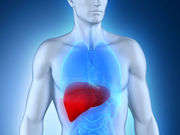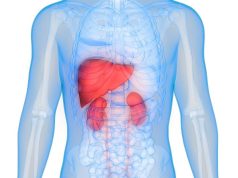Both low testosterone, sarcopenia tied to increased mortality; low testosterone is better predictor
TUESDAY, March 8, 2016 (HealthDay News) — For men with advanced liver disease, sarcopenia and low testosterone predict mortality, with better prediction for low testosterone, according to a study published in the March issue of the Journal of Gastroenterology and Hepatology.
Marie Sinclair, M.B.B.S., from the University of Melbourne in Australia, and colleagues conducted a retrospective cohort study involving 145 men referred for liver transplant evaluation. They examined the interaction for sarcopenia and low serum testosterone with mortality.
The researchers observed correlations for muscle mass with both serum testosterone and model of end-stage liver disease (MELD) score (P = 0.019 and 0.007, respectively). Both sarcopenia and low testosterone correlated with mortality, independently of MELD score (hazard ratios, 1.05 [P = 0.04] and 1.08 [P = 0.01], respectively). In a single model, including MELD score, muscle area, and testosterone, the correlation for low testosterone, but not sarcopenia, with mortality remained significant (hazard ratios, 1.07 [P = 0.02] and 1.04 [P = 0.09], respectively).
“Low testosterone and sarcopenia are both associated with increased mortality in men with advanced liver disease and may identify patients at high risk of mortality that would be missed by the MELD score alone,” the authors write. “Low testosterone appears to be a better predictor of mortality than sarcopenia and is a simpler test to improve the prognostic value of the MELD score.”
Copyright © 2016 HealthDay. All rights reserved.








